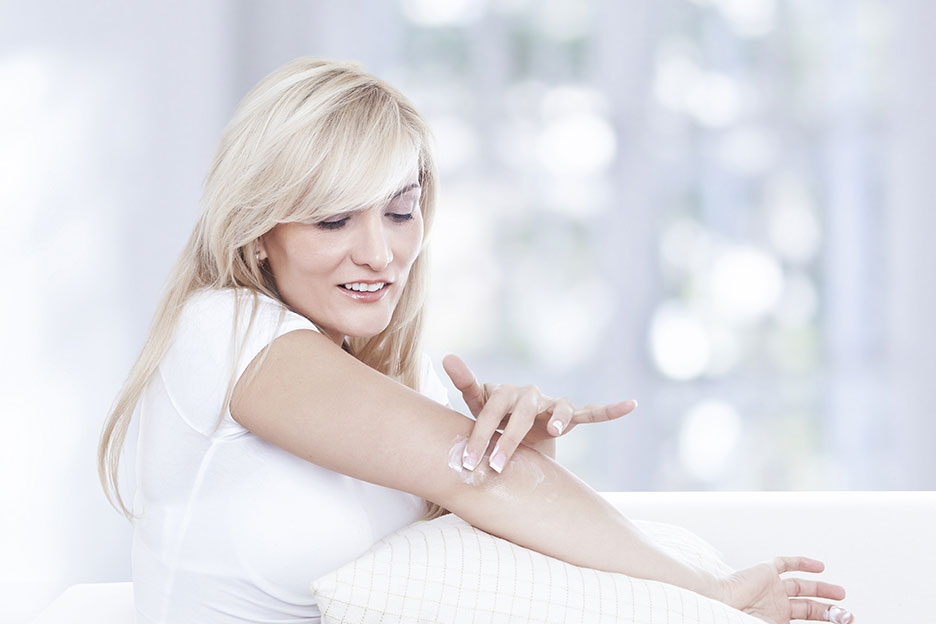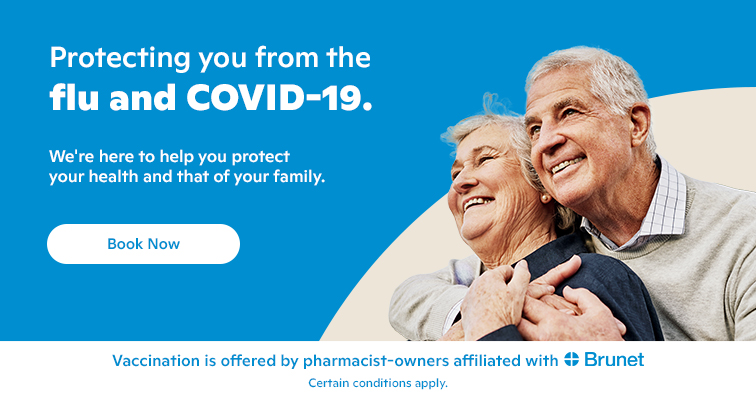Eczema is a skin disease with multiple consequences: discomfort, deterioration of physical appearance, risk of infection, etc. If your skin or your child’s skin is prone to suffering from eczema, have no fear! There are ways to ease the situation.

Basic tips
Skin is a very effective protective envelope for the body. However, to do its job properly, it must remain intact. Eczema is harmful to the skin’s function as “barrier” and makes it more sensitive to various substances and products. Although eczema cannot completely be cured, there are medical treatments that will allow you to relieve skin and strengthen its role as a natural barrier. In addition, avoiding triggers is also key in managing this disease.
Eczema triggers increase symptoms such as itchiness, inflammation and dryness of the skin. To avoid them, here are a few good habits to adopt:
- avoid sudden changes in temperature or humidity (ex: bath or shower that is too hot);
- reduce stress;
- avoid contact with rough or irritating fabrics (ex: wool);
- avoid irritating or perfumed soaps, detergents and cleansers;
- avoid contact with allergens (ex: pollen, mould, mites);
- identify and avoid foods that could trigger flare-ups;
- stop smoking.
Following these recommendations could lead to a significant decrease in eczema symptoms and in the need for medication.
Skin hydration
Maintain skin hydrated at all times is the cornerstone of eczema treatment. Hydrating creams, also known as emollients, must be selected with care to avoid irritating the skin even more. For example, hydrating products that contain fragrance can be irritating when applied to sensitive skin. In addition, it is best to choose an oil-rich emollient to maximize the skin’s hydration. Ointments contain the most, while creams are made with more water, which improves their texture. As for lotions, they contain more water than oil, making them less suitable for eczema.
Here are a few tips to keep your skin hydrated:
- Use a hydrating product every day, such as emollient cream, and apply it several times during the day. This will improve your skin’s appearance and reduce symptoms such as itchiness, redness, dryness and blotches.
- Apply your hydrating product right after taking a bath or shower; this will contribute to optimal hydration.
- Note that emollient cream can irritate the skin if it is very damaged. Regular application will eventually reduce the discomfort.
Topical medication
Eczema is a disease with symptoms that vary in intensity. In addition, eczema flare-ups usually alternate with periods of remission. During a flare-up, it is often appropriate to consider using a topical medicinal treatment, i.e. one you apply on the skin. Topical treatments designed for people suffering from eczema are usually obtained by prescription.
The most common prescribed class of medication for this condition includes topical corticosteroids. As their name indicates, they are derived from cortisone and they act on the inflammation that characterizes eczema. Consequently, they reduce its symptoms, such as, among others, redness and itchiness. They most often come in the form of a cream or ointment that must be applied in a thin layer. It is best to apply it for only a short period of time, i.e. only during an eczema flare-up. Although this class of medication is safe when used correctly, it may have certain adverse effects. For example: thinning of the skin, discoloration in the area where the product is applied and stretch marks.
Aside from corticosteroids, other topical medications are also available to provide relief to eczema sufferers. Although the exact mode of action of these medications is still not fully known, we do know that they act on inflammation and can significantly relieve symptoms. They are an interesting alternative to corticosteroids when these are not recommended, lead to side effects or are determined to be an ineffective treatment.
Your pharmacist can advise you on the optimal and safest use of medications designed to treat eczema. He or she can also help you:
- choose a suitable hydrating product for your skin;
- identify triggers for your eczema;
- find other ways to better manage the disease;
- quit smoking.
To summarize, avoiding triggers, keeping your skin hydrated and applying topical medication are measures that work together so that your skin can return to its normal state. Providing constant care to your skin or your child’s skin will allow it to be a stronger natural barrier for your body, making it better equipped to defend itself against the many irritants you face every day.
